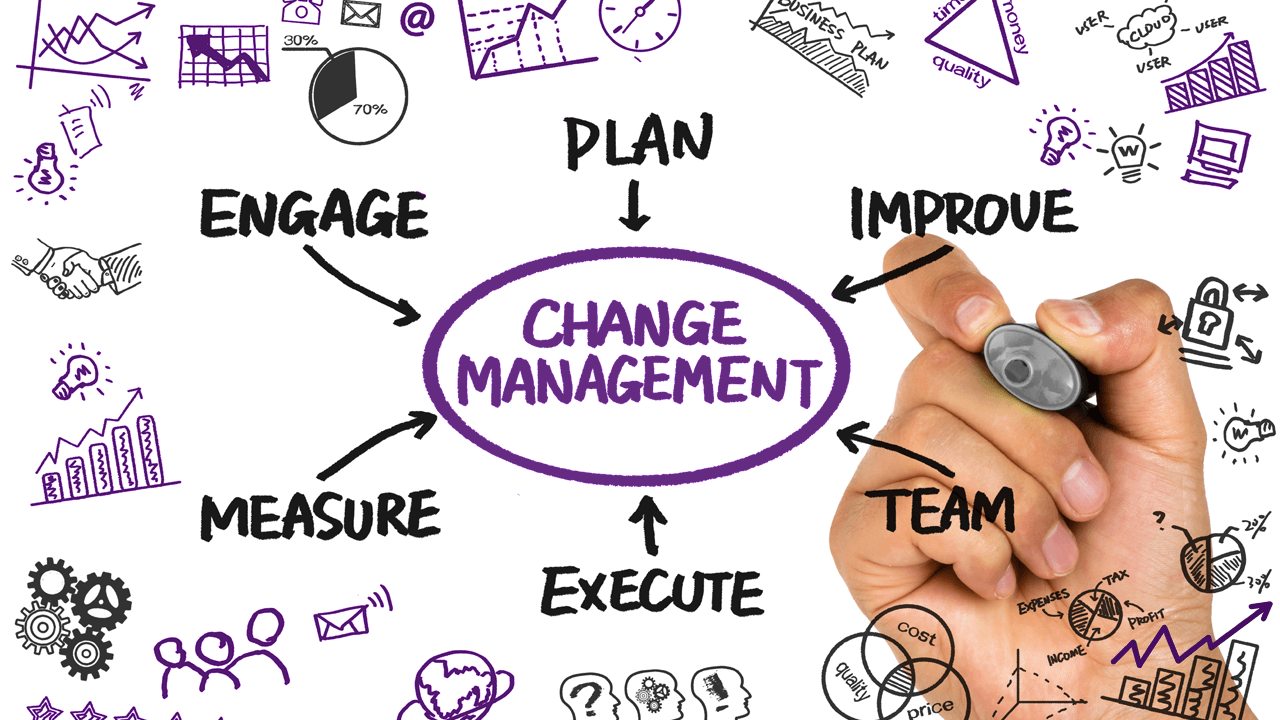Of course, you’ve all been making change happen regularly, particularly in the last two years. But how can we do it differently? How can we make HR change run more smoothly and have an impact that sustains? Now obviously, this is a huge topic, but I’m going to look at four change management essentials that I believe it’s worth thinking about.
First up is how you design the change. I deliberately use the word ‘design’ rather than ‘plan’, because when it comes to change, we need the mindset of product designers. Planning change is quite old-school. You remember the detailed project sheets we used to have? The Gantt charts – with a beginning, a middle and an end – with changes mapped out sequentially – and behavioural change plotted for 9 months later after a period of training programmes.
Of course, change isn’t like that is it? The new approach to change design is all about being led by insights into our end-users or leaders and employees. It’s about designing around employee persona – the clusters of different motivations and fears that exist within your organisation. Change design is about deploying agile design techniques such as MVP, sprint planning, early adopters and co-creation. If you’ve got a detailed two year change management plan, you might need to rip it up and approach it from a change design perspective instead!


Next up for change management essentials is thinking about how you’re are going to persuade people to be open to the change.
No matter how many times say this is important, we tend to focus on the mechanics of change rather than the psychology. I’m not saying we need to get degrees in psychiatry, but HR does need to re-claim our role as the human experts. Persuasion is not about presenting a logical business case and then training people in new skills. Persuasion is about:
- Understanding people’s resistance to change and working with that
- Creating an environment of psychological safety for people to try new things
- Making the changes required seem really small so that they are less off-putting
- Finding the right influencers who can help you build change momentum – peer to peer
The third change essential is creating behavioural shifts – changing habits, helping new behaviours become the norm – again, a totally neglected area of HR in my opinion. However, I know that many of you are already starting to use techniques like nudging to good effect. But there are others too that work really well – like re-framing – where you help people look at an issue through a different lens. These behavioural change techniques need to be part of every HR professional’s toolkit.
Finally, the fourth essential is marketing the change. Not communicating the change – marketing it, selling it. We have to adopt marketing techniques if we’re going to make it happen and stick. We have to rethink the language we use, the way we brand or name our new products. We can use techniques like permission marketing or content marketing to build and engage our audience. And we need to build critical mass and momentum through working first with the ones who might be up for something different. We cannot force people to change so we are better off ignoring the biggest resistors and focusing on where we can get some traction.
So, in summary, new change management is about using new design techniques, investing time and skill on persuading people to change their behaviour and marketing and selling it effectively.
Join the Disruptive HR Club for free and enjoy a taste of our exclusive blogs, podcasts, videos, and live events
Recent Posts
Meet Nana…HR Disruptor and Club pro member!
We caught up with Nana Arkhurst, Director of People and Performance at Demica, a leading fintech, to find out how she is disrupting traditional HR practices.
The third evolution of HR
HR is now in its third evolution. We're moving on from being the nursemaid or process implementer. We're now focused on enabling people to do their best work.
Making time to invest in ourselves
If we are going to be equipped with the HR skills and mindsets we need for the future, then we have to make the time to invest in ourselves. This blog looks at what might be stopping us and how we can make it happen.